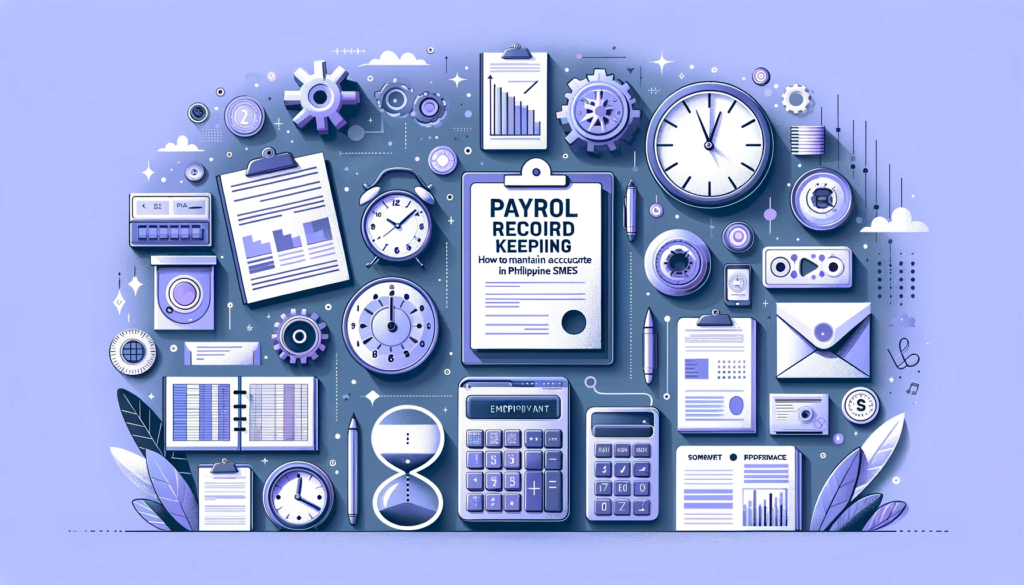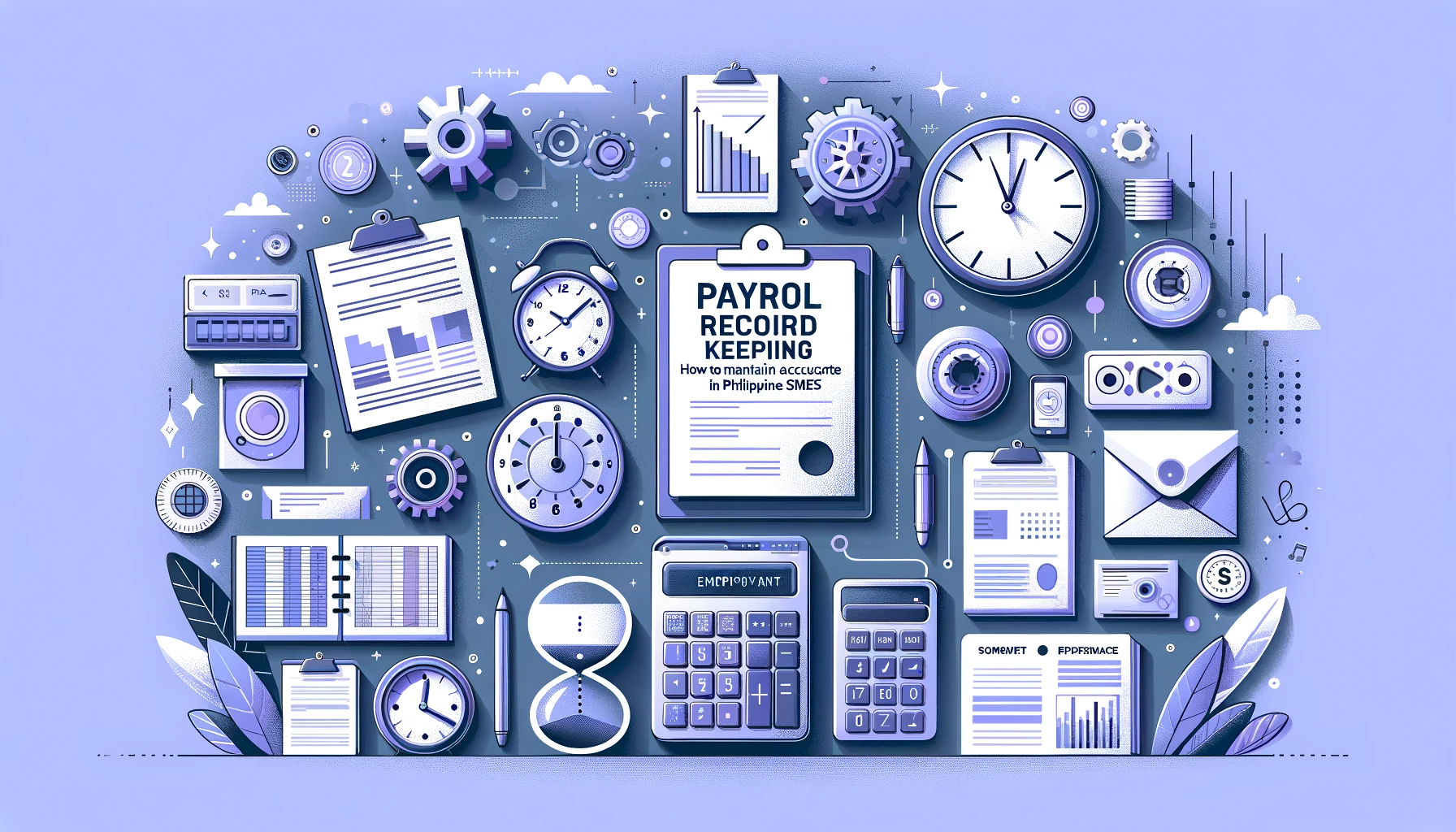Payroll Record Keeping Tips: How to Maintain Accurate Records in Philippine SMEs
Payroll Record Keeping might not be the most glamorous or exciting part of a business, and it can even be challenging if you don’t have an accounting background. Nevertheless, it’s an essential part of your business. Since your employees are your most valuable assets, you need to recognize the value that they bring to your company through thorough and accurate payroll accounting.
In a startup or small-to-medium enterprise (SME), payroll may not involve an entire department. It could be handled by one employee, the business owner themselves, or an accounting agency. Whoever handles your company’s payroll, the most important aspect is to keep the employee information and records up-to-date for an accurate disbursement of salaries.
As a business owner, you should be knowledgeable about how to keep accurate payroll records. To help you build that knowledge and to work toward maintaining impeccable payroll records, we’ve compiled these essential tips that will keep both your employees and accountants smiling.
1. Invest in Robust Payroll Software Solutions
If you’re still doing payroll on Excel, it’s probably time to upgrade. Consider looking for a more efficient tool that will eliminate most errors and make the job a lot easier. Moreover, invest in one that is user-friendly, tax-compliant, and can be tailored to your business’s unique needs.
For businesses and SMEs in the Philippines, Maya Business may have the payroll system that’s right for you. Maya Business, a trusted financial technology solutions provider in the country, specializes in innovative solutions for businesses of all sizes. One such innovation is Maya Disbursements. This fund disbursement solution features a payroll management system that’s designed for Philippine-based startups and SMEs. It is an integral part of the Maya Business ecosystem, which includes other financial solutions that will help you better manage your business’s finances.
2. Create an Employee Data Checklist
Do you keep an updated and comprehensive employee database? Growing businesses should maintain a checklist that includes essential details like full names, taxpayer identification numbers (TINs), social security numbers, addresses, and other important information. After all, keeping these data updated and organized is the foundation for maintaining accurate records.

3. Keep Accurate Timekeeping
Ensure that you have a reliable timekeeping system in place. Filipino SMEs often employ hourly workers, including project workers and gig workers, so precise time tracking is vital. For this reason, you may have to invest in an automated system to minimize errors, especially when it comes to overtime calculations for these varied employment types.
4. Comply with Tax Requirements
For non-accountants, tax compliance can be a maze of bureaucracy. In the Philippines, tax regulations are downright complex and ever-changing. That’s why you have to make sure that you are deducting the right amount of income tax from people. Plus, you have to keep in mind other mandatory deductions such as SSS, Philhealth, and Pag-IBIG contributions.
With so many elements to include in every payroll, Filipino entrepreneurs will appreciate the user-friendliness of the Maya Disbursement payroll system. The Philippines, like any other country, collects taxes and mandatory deductions that should be reflected in an employee’s payroll slip. Since Maya Disbursement was designed specifically as a Philippine payroll system, these are all accounted for, making your payroll processing easy and seamless every payday.
5. Document All Employee Earnings
Maintain a detailed record of all employee earnings. This includes regular wages, overtime pay, bonuses, commissions, and any other forms of compensation.
Fortunately, Maya Disbursement was built to process more than just an employee’s wages. You can use the system to disburse incentives, allowances, commissions, and more. With an all-in-one disbursement system, there’s no reason for you to spend more on additional tools.
6. Maintain Proper Payroll Journal Entries
Remember to keep accurate payroll journal entries on your general ledger to properly account for payroll expenses. Aside from ensuring compliance with the Bureau of Internal Revenue (BIR), these entries can be your backup documentation when tracing discrepancies and understanding historical data.
7. Ensure Data Security
Payroll records contain sensitive information, and data breaches can be disastrous. Store these records securely and restrict access to authorized personnel only. In addition, consider using encryption and access controls to protect this valuable data.
8. Seek Professional Help When Needed
In some cases, especially with complex international payroll requirements or changing regulations, it’s wise to consult with tax professionals or certified public accountants. They can offer expert guidance and ensure you’re always on the right side of the law.
Keeping accurate payroll records is not just about following regulations but also a reflection of your commitment to your employees and the financial health of your business. For Filipino entrepreneurs and SME owners, meticulous record-keeping is a sign of professionalism and trustworthiness. So, implement these suggestions to ensure that your payroll records are flawless. This will not only keep your employees satisfied but also your accountants and the government off your back.
By following these steps, you can maintain the highest standards of payroll record-keeping. This ensures the smooth financial operation of your business. Ultimately, your employees will thank you, and your business will thrive in the Philippines’ competitive market.









